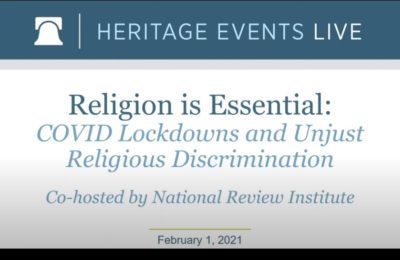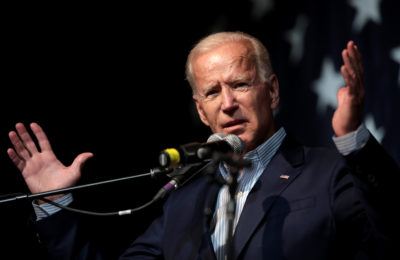Advent and Discernment
December 14, 2016 | Published first in Church Life Journal
The Vocation of Discernment
It strikes me how frequently opportunities for discernment become moments of crisis in life. As an undergraduate in my senior year, the impending future after graduation is a popular topic of discussion amongst my friends and classmates. The various dimensions of how life will look after graduation have been coming together like the pieces of a puzzle for the past four years. Yet for many seniors, a few pieces of that puzzle have yet to be found—the image of the future is incomplete. When we realize that we cannot gaze at our future selves with clarity, a sense of urgency and anxiety can set in. This often seems like the appropriate time to employ a spirit of discernment by asking God what he wants us to do with our lives and how we can proceed forward.
The process of discernment involves not only listening for the words of Jesus, “Come, follow me” (Mt 1:7; Mk 4:19), but also preparing to go where he beckons. Disposing ourselves to hearing these words often takes place through the stance of prayer over a long period of time. Discernment also requires that our spiritual dispositions correspond with our lifestyle so that when we actually hear Christ calling we do not respond as some did in the Gospels by saying, “[Lord], let me go first and bury my father,” or, “I will follow you, Lord, but first let me say farewell to my family at home” (Lk 9:59, 61). In this way, beginning to discern the final pieces of our future when we have already set the rest of pieces in place ourselves can be a barrier to the process of discernment. God has the entire image in mind, and it is a radical decision to actually open oneself up to seeing it as God reveals it.
Rather than associating discernment with lightening moments of clarity in our lives, I like to think of discernment as the unfolding of one’s identity in Christ. Our authentic identity begins to unfold within us as we strive to conform ourselves to Christ. This is the necessary movement of our baptismal vocation, the most fundamental vocation we have to discern. In Baptism, one takes on the life in Christ as one’s own. In this way, one’s life should become a continual practice of discernment. When we are predisposed to discern the particularities of life, then the process of discernment need not simply begin when we come to a crossroads. Even though the spirit of discernment may intensify at particular moments in life, the continual practice of discernment helps form us on a daily basis, which better enables us to follow Christ through this messy life. So, in a certain sense, our vocation is to discern, but not without decision. With Christ as our guide and stamped with the mark of our Baptism, we can live in eschatological hope and emanate the joy of that hope as we navigate the particularities of the puzzle of our lives.
The Privilege of Discernment vs. the Practice of Discernment
At decisive moments in life that require us to choose one path, it is important to recognize that it is often a privilege that these options even lay before us. The term ‘discernment’ is, all too frequently, loosely thrown around by young, college-educated adults who have multiple job offers or post-graduation opportunities placed before them. In this instance it is easy to mistake the process of choosing one’s future plans of employment with the disposition of discernment mentioned above. Discernment is much more than the activity of choosing among different paths in life. Take for instance a father who works tirelessly at a job—not a career of his choosing—to support his family. If this man did not have the opportunity to choose a job but rather took one out of necessity, does this mean that he did not have the opportunity for discernment? It is a privilege to be at a point where one can discern between things like jobs and houses and graduate schools, but this does not mean that the practice of discernment is contingent upon the choice between goods in one’s future. The practice of discernment by those who do not have privileged choices can perhaps inform our understanding of discernment as a disposition rather than just another word in the vocabulary of the privileged. In such a way, the practice of discernment becomes the way in which we allow Christ to accompany us through the joy, the sorrow, and the ordinariness of life.
Icons of Discernment
Advent is an appropriate time to reconsider how we dispose ourselves to the practice of discernment in light of the coming of Christ. Through this liturgical season, Joseph and Mary can journey with us in any of our anxieties as icons of discernment. Mary, from the moment of her fiat, embodied courage when presented with a changing and uncertain future. She had predisposed herself to the will of God in unknown preparation for that moment. She could not have foreseen a pregnancy before her marriage to Joseph or the conditions of Jesus’s birth at the manger in Bethlehem, but she was guided by the Lord and trusted his ways. Similarly, Joseph listened obediently when called by an angel to remain with Mary and be a father to Jesus. Even though he was not certain what that would mean for his own future plans, he desired to allow the will of God to become manifest in his life to its fullest. Mary and Joseph both show us the humble disposition needed to respond to God’s call and undertake a journey through the practice of discernment.
Guided by God-Incarnate in Mary’s womb, Mary and Joseph humbly followed the tender beckoning of the Christ-Child who called them forth through any fears or doubts. Mary and Joseph had to abandon themselves totally to the will of God—even to the lowliness of the manger—for God’s plan to manifest itself in their lives. As the birth of Christ became a nearer reality, we can imagine that the holy couple was not disquieted with anxiety, but journeyed together in the spiritual quiet of peace. And in that peacefulness, the identities of Mary and Joseph as members of the Holy Family unfolded before them. God’s revelation of their roles in the divine plan may not have matched their own images of their future; however, they were predisposed to accept God’s will through the practice of discernment. Hence, the holy couple can serve as an icon for contemplation of how we might allow God to enter totally into our own lives, instead of merely setting aside a place for him within our own plans for our future.
Discernment is not simply the choice between two goods, but the choice to intentionally walk with Christ, guided at first by Joseph and Mary, who journeyed with the Christ-Child, and then, guided by Christ himself who embraces the Cross and walks to Calvary. Amid the chaos of life it is important that we recall our baptismal vocation to take on the life of Christ. May we practice discernment with a heart that is radically open not only to Christ entering our lives peacefully in the manger, but also radically open to the Cross.
—Madeline Running is a senior studying Theology and Catholic Social Tradition at the University of Notre Dame and an undergraduate fellow with the Notre Dame Center for Liturgy.
—Reprinted with permission from The Church Life Journal.


